Politics
Roberta Metsola – European Leadership And Political Representation
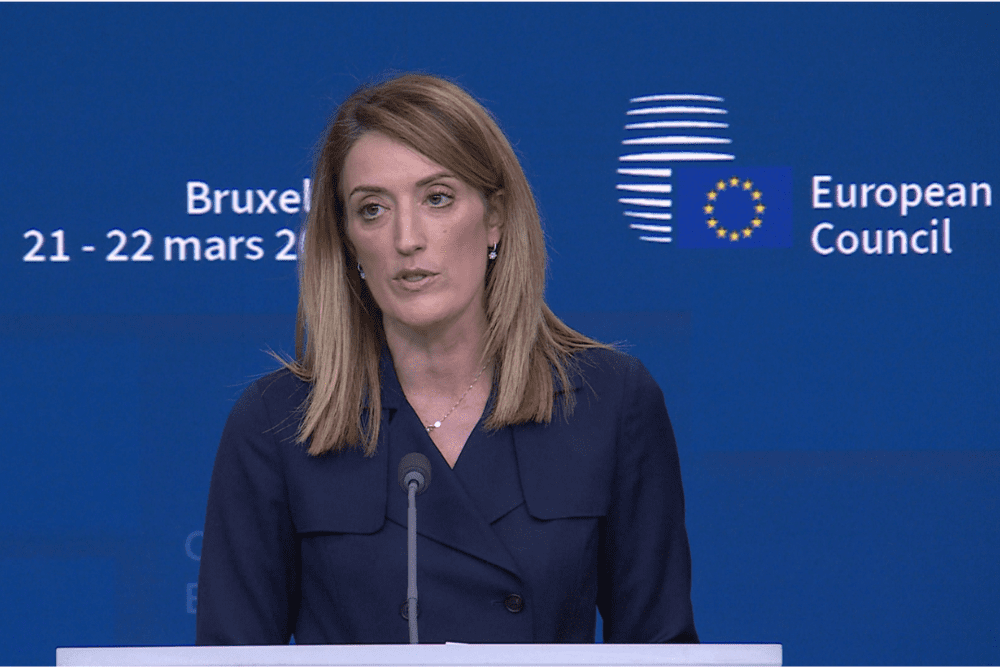
Europe stands on the brink of transformation with Roberta Metsola at the helm of European leadership. As the President of the European Parliament, you will explore how her vision and determination are reshaping political representation in the EU. This post investigates into her pivotal role, the impact of her policies, and what this new era signifies for the future of European unity and governance. Join us as we uncover how Metsola’s leadership can influence not only political discourse but also your everyday life as a citizen in Europe.
Roberta Metsola: A Brief Biography
Before stepping into her significant role as one of Europe’s foremost leaders, Roberta Metsola’s remarkable journey began long before her election. In January 2022, she made headlines when she was elected as President of European Parliament, marking a pivotal point in European political representation. Her ascent illustrates the emerging trend of progressive leadership across Europe, engaging citizens on pressing issues and fostering a sense of inclusion within the EU’s governance framework.
Early Life and Education
Behind every leader is a rich tapestry of experiences that shape their vision and directive. Roberta Metsola was born on January 18, 1978, in the vibrant city of Valletta, Malta. Growing up in a politically conscious family, she cultivated an early interest in governance and civic duty. She pursued her education in law at the University of Malta and complemented it with a Master’s degree in European and Comparative Law from the University of Edinburgh. This educational foundation equipped her with a strong understanding of Europe’s legislative framework and its impact on member states.
Political Career Beginnings
Roberta’s political career began as an active youth member of the Nationalist Party in Malta while she was still in university. Her determination led her to secure a role as a legal adviser in the European Parliament, where she gained invaluable insight into the functioning of European institutions. In 2013, she was elected as a Member of the European Parliament, where she represented her constituents with great passion and commitment, championing various issues, including migration, digital innovation, and gender equality.
Biography continues to showcase her relentless pursuit of progress and reform. Roberta’s early political engagements lay the groundwork for her significant influence in the European Parliament, as she adeptly navigated complex political landscapes and built a network of relationships that would later support her rise to leadership. Her background and initial experiences have undeniably been instrumental in shaping her approach to European challenges, making her a prominent voice in the ongoing dialogue around Europe’s future.
Leadership Role in the European Parliament
Election as President
Against the backdrop of a shifting political landscape in Europe, your attention should be drawn to Roberta Metsola’s election as President of the European Parliament in January 2022. This significant achievement not only marked a milestone for her career but also for the representation of women in leadership roles within European institutions. Her election was a clear signal that the European Parliament is ready to embrace a new leadership style, one that prioritizes collaboration and constructive dialogue among member states.
Against the challenges of Brexit, the ongoing pandemic, and various geopolitical tensions, you will find that Metsola’s leadership approach has become increasingly relevant. She embodies a mix of experience and fresh perspectives, which reflects the diverse opinions and interests of the European populace. As a representative of Malta, she brings unique insights that are crucial for forming alliances and pushing forward Parliament initiatives that resonate with citizens across the continent.
Key Initiatives and Policies
Parliament’s agenda under Metsola’s leadership highlights several initiatives focused on digital transformation, climate change, and enhancing EU‘s global partnerships. You will notice her firm commitment to advancing policies that not only improve the lives of EU citizens but also bolster the European Union’s position on the international stage. She has facilitated discussions that emphasize the need for sustainable development and responsible governance, reflecting a more systemic approach to leadership.
Understanding the rapidly changing dynamics of Europe, Metsola has been actively promoting EU digital policies that aim to position Europe as a global leader in innovation and technology. Furthermore, she is dedicated to tackling climate challenges through legislative measures that support sustainable energy transition. Metsola’s focus on inclusivity also paves the way for broader representation of diverse voices, especially in relation to matters of migration and human rights, reinforcing the EU’s foundational values. These key initiatives demonstrate her vision for a united and progressive Europe, which is more relevant than ever in today’s world.
Challenges Facing European Leadership Today
Despite the optimism surrounding new leadership, Europe faces a myriad of challenges that could hinder progress. You may notice that political divisions have increasingly come to the forefront of the European agenda, potentially stalling initiatives meant to unite member states. This fragmentation often arises from differing national interests, ideologies, and responses to global events. Leaders must navigate these divisions carefully to foster cooperation and derive collective solutions, even as public sentiment and political rhetoric increasingly strive to polarize rather than unite.
Political Divisions
Across Europe, you can observe a landscape where political parties and movements are growing more extreme, challenging the established norms of governance. This increases the difficulty of achieving consensus on vital issues, such as immigration policies, sustainability initiatives, and the economic recovery from the pandemic. As a citizen, you may find that this atmosphere of division not only affects political discourse but can also inspire a sense of disenfranchisement among voters who feel that their voices are not adequately represented.
Social and Economic Issues
Alongside political divisions, you cannot overlook the pressing social and economic issues that dominate the European landscape. Many citizens face rising living costs, stagnant wages, and a consistently high unemployment rate, particularly among youth. These socioeconomic challenges not only create instability but also exacerbate tensions between different social groups. As you assess the future of European leadership, it’s crucial to recognize that sustainable solutions must address these underlying issues to pave the way for a more unified and prosperous continent.
Further complicating the situation are the varied economic performances of member states, which lead to disparities in wealth and opportunity. You might find that while some nations recover quickly from economic downturns, others lag behind, creating a sense of inequality that can stir social unrest. Leaders must focus on coordinated efforts to enhance social mobility and economic resilience, recognizing that addressing these disparities is vital for political stability and community cohesion throughout Europe.
The Significance of Representation
Unlike previous leaders, Roberta Metsola brings a fresh perspective to European political representation, fostering a sense of inclusivity and visibility that extends beyond mere symbolism. Her ascent to leadership is emblematic of a broader shift towards recognizing the importance of representing diverse voices. You may be wondering how this shift affects your experience within European governance, as the presence of varied perspectives can enhance decision-making processes and reflect the needs of a wider population.
Gender Representation in Politics
Against the backdrop of a historically male-dominated political landscape, Metsola’s leadership symbolizes a significant advancement for gender representation in European politics. This shift is not just about one woman’s achievements; it represents a collective movement towards greater balance in political spaces. You stand to benefit from this change, as a more equitable representation can lead to policies that are more attuned to the needs and aspirations of all genders, thus shaping a society that is more just and equitable.
Diversity and Inclusion in Leadership
Between the interplay of various identities, cultures, and experiences in leadership, you will find that true success in governance arises from inclusive practices. Metsola’s commitment to diversity signals a departure from the homogeneity that has characterized much of European politics. As you engage with political processes, you will see that this broader representation ensures that diverse viewpoints are not only heard but also integrated into the decision-making framework.
In addition to promoting diverse voices, understanding the dynamics of inclusion involves creating environments where all individuals feel valued and empowered to contribute. Your role in supporting and advocating for such inclusive practices is vital as it allows for richer discussions and solutions that reflect the complexities of European society. Embracing diversity in leadership fosters innovation and resilience, enabling you to navigate the challenges of an ever-evolving global landscape effectively. Through this commitment to inclusion, we pave the way for a leadership paradigm that is fit for the realities of today’s world.
Metsola’s Vision for Europe’s Future
Keep an eye on Roberta Metsola’s ambitious vision for reshaping the future of Europe. As the first Maltese President of the European Parliament, she aims to empower citizens and ensure political representation is reflective of the diverse voices within the European Union. Metsola envisions a Europe that prioritizes the needs of its citizens, focusing on sustainable development and innovative policies that foster growth and prosperity for all member states. You will find that her leadership style is marked by inclusivity and a strong commitment to modernizing the European Union’s frameworks to respond to contemporary challenges effectively.
Strengthening European Values
About Metsola’s agenda to reinforce the core values that define Europe and its mission goes hand in hand with the EU’s fundamental principles of democracy, human rights, and the rule of law. You will see her strong advocacy for these values, as she aims to cultivate a sense of unity among member states while embracing the richness of their cultural diversity. By fostering dialogue and collaboration, Metsola believes that a renewed commitment to these shared values will not only serve to strengthen the bonds between nations but also enhance citizens’ trust in their institutions.
Addressing Global Challenges
Behind Metsola’s vision lies a deep understanding of the pressing global challenges that the European Union faces today, including climate change, economic inequality, and geopolitical tensions. You will appreciate that she emphasizes the importance of collective action to tackle these issues, encouraging a cooperative approach among member states and international partners. Metsola believes that Europe’s leadership can pave the way for innovative solutions that promote security, sustainability, and equitable growth in the face of a rapidly changing world.
Consequently, you will find that her strategy includes fostering international alliances and enhancing Europe’s role on the global stage. Metsola’s commitment to addressing global challenges enables you to envision a proactive Europe that not only tackles its domestic issues but also plays a vital role in addressing worldwide problems. By promoting partnerships beyond the EU, she aims to establish Europe as a key player in global governance, ensuring that your interests are represented in crucial international conversations that affect the future of our planet.
Reactions to Metsola’s Leadership
Support from Member States
Below, you will find a wide array of support from various Member States, who see Roberta Metsola’s leadership as a refreshing change in European politics. Leaders from nations across the EU have praised her commitment to unity and collaboration. Many view her as a bridge-builder who brings a wealth of experience to the table. Your own country’s representation may find Metsola’s emphasis on inclusivity and dialogue particularly resonant, inspiring a new spirit of cooperation among states that extends beyond just policies to encompass social and cultural connections as well.
Moreover, her proactive approach in addressing pressing issues like migration, climate change, and the economy has resonated with governments aiming for a balanced and progressive Europe. You may notice that several heads of state have openly voiced their confidence in her ability to steer complex discussions and negotiations, marking a pivotal shift towards a more cohesive European strategy. This support underscores the resilience and collective ambition that can arise under her leadership.
Critiques and Opposition
Before delving into the critiques aimed at Metsola’s administration, it is imperative to acknowledge that no leader is without opposition. Some critics have raised concerns regarding her alignment with certain political factions within the European Parliament, arguing that such connections may compromise her ability to remain impartial. As you analyze the varying perspectives, it becomes clear that these critiques often stem from diverse political ideologies that challenge her consensus-driven approach.
With that in mind, you may find that opposition also recognizes the complexities of her role, particularly in navigating the balance between representing small and large Member States, each with their unique priorities and challenges. Political opponents might argue that her past positions, especially on contentious issues, could inadvertently emphasize divisions within the EU during her tenure. Ultimately, understanding these critiques can provide you with a more nuanced view of the multifaceted landscape of European leadership under Metsola.
Summing up
Summing up, you can see that Roberta Metsola’s election as the President of the European Parliament signifies a transformative shift in European leadership and political representation. Her tenure embodies a commitment to democratic values and inclusive policymaking that aims to address the challenges faced by the European Union today. You should take note of her strategic vision as she invites all EU leaders to collaborate and elevate their efforts towards creating a more unified Europe. Her call to action is echoed in her statements, particularly in the context of her recent message to EU leaders, which you can explore further in Metsola to EU leaders “2025: Time to step up” | News.
Moreover, Metsola’s leadership style emphasizes transparency, accountability, and a focus on youth engagement, making her a relatable figure for many. By fostering dialogue and cooperation among member states, she encourages you to engage with the evolving political landscape in Europe. As you continue to witness her impact on the European Parliament and beyond, you will appreciate the importance of active participation in shaping a democratic future that reflects your values and aspirations in this new era of European politics.
Politics
New plan will help EU countries tackle cyber-attacks better
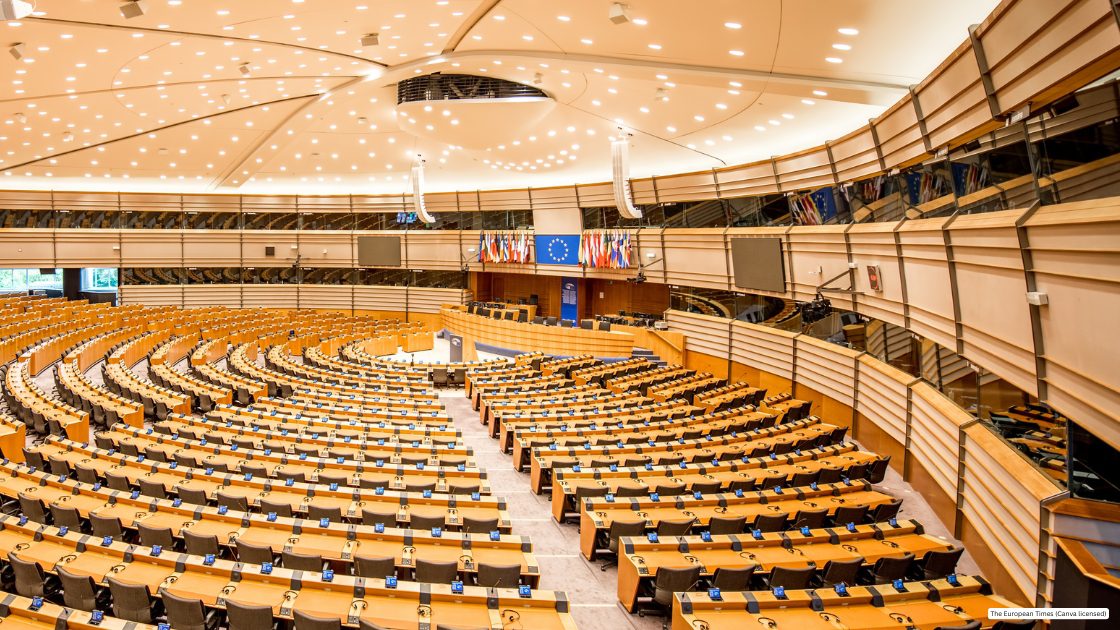

© FRVS+MPCP 2022. The European Times® News is registered as an EU Trademark. All rights reserved. The European Times® and the logo of The European Times® are EU trademarks registered by FRVS+MPCP.
Members/Partners of

About Us
Popular Category
DISCLAIMER OPINIONS: The opinions of the authors or reproduced in the articles are the ones of those stating them and it is their own responsibility. Should you find any incorrections you can always contact the newsdesk to seek a correction or right of replay.
DISCLAIMER TRANSLATIONS: All articles in this site are published in English. The translated versions are done through an automated process known as neural translations. If in doubt, always refer to the original article. Thank you for understanding.
DISCLAIMER PHOTOS: We mostly used photos images that are readily available online, from free sources, or from the people promoting the news. If by any chance it happens that we have used one of your copyrighted photos, please do not hesitate to contact us and we will take it down without question. We do not make profits as this is a not for profit project to give voice to the voiceless while giving them a platform to be informed also of general news, and it is completely free.
Editor Picks
Politics
EYE2025 (European Youth Event): thousands to celebrate the power of democracy | News
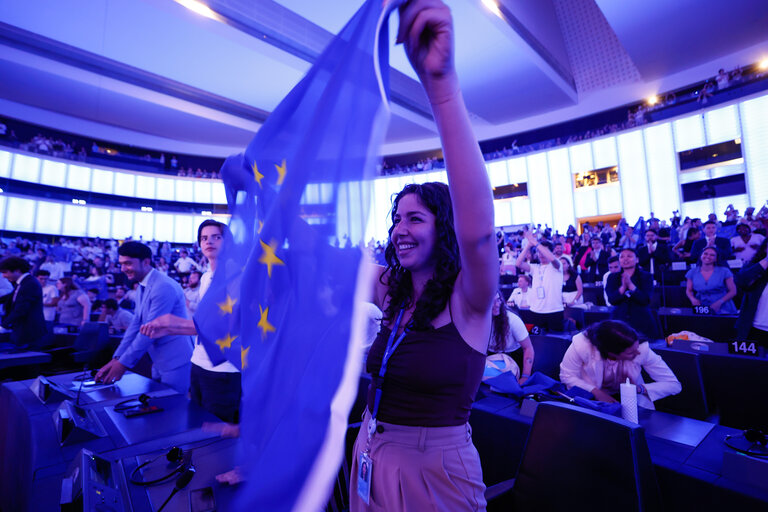
EYE2025 (European Youth Event) will be opened by Parliament Vice-president Sabine Verheyen (EPP, DE) on Friday 13 June at 10:00 in the EYE village. Vice-president Nicolae Ştefănuță (Greens/EFA, RO) will take part in a session dedicated to the next long-term budget, on Saturday at 15:00. The closing session, with Vice-president Pina Picierno (S&D, IT), will take place on Saturday at 16:45.
Over the two days, there will be panel discussions with MEPs and other EU decision-makers, as well as with experts, activists and content creators. Debates between MEPs and the young participants will cover climate justice, skills for the future, the EU’s next long-term budget, and freedom of speech and media, among many other topics.
Commissioner for Intergenerational Fairness, Youth, Culture and Sport Glenn Micallef will lead a Youth Policy Dialogue on Friday at 11:00, and take part in a panel discussion on young people’s mental health that afternoon. Executive Vice-President of the Commission, Henna Virkkunen will join in a conversation on how technology can strengthen democracy, on Friday at 15:00.
Other guest speakers are democracy activist Daria Navalnya, the Kayapo Amazonian tribal leader Chief Tau Metuktire and the Mayor of Strasbourg Jeanne Barseghian.
The programme also includes workshops on a wide range of issues that concern young people, from disinformation to housing and migration. Quizzes, tours, artistic performances, storytelling workshops and concerts are other options among more than 450 activities organised for the sixth edition of EYE.
All sessions in the hemicycle will be streamed live on the EYE2025 Facebook page and via Parliament’s Multimedia Centre. More details about the schedule, speakers and activities are available on the European Youth Event website.
Press briefing
On Friday 13 June at 16:30, there will be a press briefing with Vice-president Verheyen on media freedom in the EU, in the Daphne Caruana Galizia press conference room. You can follow it live here.
Source link
Politics
Galician healthcare system receives nearly €510 million in EU support for its modernisation
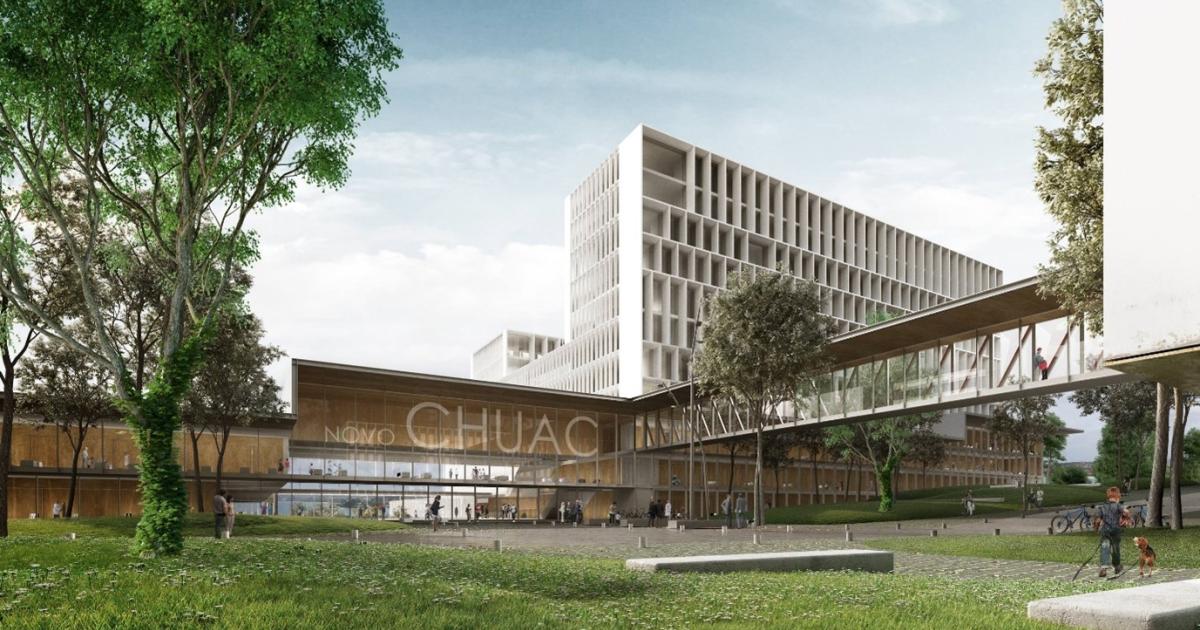
The European Commission supports the development of the new A Coruña university hospital complex (CHUAC) in the city of A Coruña, located in the Spanish region of Galicia. The grant of nearly €60 million awarded under the Public Sector Loan Facility (PSLF), as part of the Just Transition Mechanism (JTM), complements a loan of €450 million provided by the European Investment Bank (EIB), and Xunta de Galicia’s own resources, bringing the total investment to €600 million.
This social infrastructure project of regional interest aims to expand and modernise the existing hospital complex in A Coruña. It is one of Xunta de Galicia’s major actions to strengthen its public healthcare system. The new hospital complex will include state-of-the-art infrastructure and facilities to provide comprehensive and high-quality healthcare and medical services for patients.
The resulting modern and sustainable healthcare infrastructure will improve the provision of health services and the quality of life of the citizens of Galicia, which in turn will enhance regional convergence with a significant impact on the local economy and employment.
Thanks to this project, around 564 000 people are expected to benefit from more efficient, accessible and quality health services in A Coruña and the surrounding areas. The project is also expected to create an estimated 6 140 direct and indirect jobs related to health infrastructure, representing approximately 1.3% of the employed population in A Coruña. With its energy efficiency measures, bioclimatic architecture, as well as sustainable and smart resources management, the project can substantially contribute to climate change mitigation.
This investment therefore plays a crucial role in mitigating the long-term socioeconomic consequences of the coal-fired plants closures in the region, while promoting a sustainable and an inclusive recovery for Galicia in the context of the region’s ageing demographic and green transitions.
Emma Toledano Laredo, Director at the European Commission (DG REGIO), said:
The European Commission, together with CINEA and the EIB, is very proud to bring the new A Coruña university hospital complex to life thanks to the Public Sector Loan Facility. This green, innovative and people-first project will enhance the provision of healthcare to Galicians, while bringing jobs to the region. This is yet another example of how a just and green transition can bring improvement in all sectors of a regional economy and its people.
Paloma Aba Garrote, Director of CINEA, added:
The new A Coruña university hospital complex is an excellent example of how the Public Sector Loan Facility can support European regions in their transition towards climate neutrality and improve people’s lives. Together with our partners, we are proud to invest in a sustainable and modern healthcare infrastructure, which will provide high-quality and accessible services for Galicians while fostering social cohesion, regional convergence and sustainability.
A spokesperson for the Xunta de Galicia regional government stated:
This project aiming to modernise and expand the A Coruña university hospital complex is a fundamental investment to develop the Galician healthcare infrastructure. Galicia is the first Spanish region to receive support from the Public Sector Loan Facility. Moreover, the new CHUAC project has been awarded the biggest PSLF grant so far, amounting to €59.3 million.
About PSLF
The Public Sector Loan Facility (PSLF) is the third pillar of the Just Transition Mechanism (JTM) – a key tool of the European Green Deal Investment Plan to make sure that no one and no region is left behind in the transition to a climate-neutral economy.
The PSLF combines loans from the European Investment Bank (up to around €6-8 billion) with grants from the European Commission (up to €1.3 billion). The combined support is designed to mobilise additional investments for public sector entities in the regions most affected by the green transition as identified in the Territorial Just Transition Plans, to meet their development needs as they move towards a climate-neutral economy. Each Member State creates these plans to identify the challenges faced by just transition regions, along with their development needs and targets for 2030.
The combination of the European Investment Bank loan and the EU grant will help fund projects that do not generate enough revenues to cover their costs.
PSLF is managed by DG REGIO and implemented by CINEA.
About DG REGIO
The Directorate-General for Regional and Urban Policy (DG REGIO) is the department of the European Commission responsible for EU policies on regions and cities. It develops and carries out the Commission’s policies on regional and urban policy. It assists the economic and social development of the developed and less developed regions across the European Union.
About CINEA
The European Climate, Infrastructure and Environment Executive Agency (CINEA) is an Executive Agency established by the European Commission to implement parts of EU funding programmes for transport, energy, climate action, environment and maritime fisheries and aquaculture. CINEA aims to assist its beneficiaries, establish strong partnerships, deliver high-quality programme and project management, foster effective knowledge sharing and create synergies between programmes – to support a sustainable, connected, and decarbonised Europe.
About the EIB
The European Investment Bank (EIB), whose shareholders are the 27 Member States of the European Union, is the EU’s long-term financing institution. The EIB provides loans to the public and private sectors to support high-quality investments contributing to the achievement of the EU headline targets.
Visit the PSLF webpage on CINEA website to find out more about the Facility and the projects it funds.
-
EU & the World5 days ago
Aurora Borealis Forecast: Where & When to See the Northern Lights Tonight
-

 Sports6 days ago
Sports6 days agoChampions League Final 2024-2025: PSG-Inter, official lineups
-
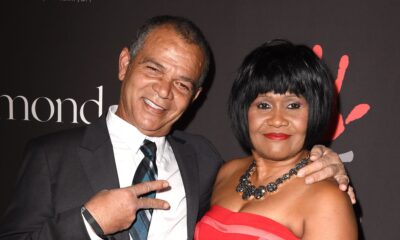
 EU & the World6 days ago
EU & the World6 days agoRihanna’s Parents: About Her Late Dad Ronald Fenty & Mom Monica Braithwaite
-

 Sports5 days ago
Sports5 days agoOfficial: Damien Comolli new general manager of Juventus.
-

 EU & the World6 days ago
EU & the World6 days agoLoretta Swit’s Net Worth: How Much Money the ‘M*A*S*H’ Alum Had
-

 EU & the World6 days ago
EU & the World6 days ago‘King of the Hill’ Revival: Upcoming Hulu Sitcom’s Release Date & More
-

 Sports6 days ago
Sports6 days ago“Pecco Bagnaia is a'shadow”: the'former driver celebrates Marc Marquez
-

 EU & the World6 days ago
EU & the World6 days agoTaylor Swift’s Net Worth: How Much Money She Has in 2025








